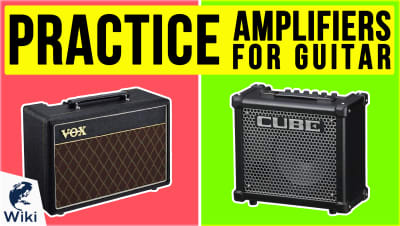What Does It's Lit Mean?
Language is always evolving. New slang becomes popular as older terms fade into obscurity. And in the age of the Internet, the process often happens more quickly than it used to, which can make it difficult to keep up with the current vernacular. In this guide we'll look at the word "lit," its history, and what it means today. This video was made with Ezvid Wikimaker.
What Does "It's Lit" Mean?
If you see someone on the Internet say that a party was "lit," you can assume that they had a good time last night. In this context, "lit" is a synonym for "awesome," "fun," or "amazing." It's often followed by the fire emoji, since it comes from referring to wild, fun parties as being "on fire."
Different Meanings of "Lit"
- Past tense of "light"
- Short for "literature"
- Drunk or under the influence of drugs
- Wild and fun; amazing
How to Keep Up With Slang
With all the new words that pop up every year, learning how to communicate on the Internet can sometimes feel like learning another language. But there are some easy ways to figure out what different Internet terms and texting expressions mean. First, you can use context clues. Look at the sentence as a whole to try and deduce what the unknown word means based on that. If that doesn't work, just plug the word into a search engine and see what comes up. Sites like Urban Dictionary will usually pop up, and give you a helpful definition.
What Makes a Word Real?
In Depth
Have you ever heard somebody refer to something as "lit" and wondered what they meant by that? It's an old slang term that resurfaced some time during the 2010s, and there are several meanings tied to it. With that said, let's quickly go through its popular definitions and their uses.
Way back in the early 1900s, the slang term "lit" was used to refer to someone who is drunk or under the influence of drugs. The logic behind this usage is that when people are intoxicated, their faces "light up" to show happiness or excitement. This has been one of the most known uses of the term, at least until the mid to late 2000s.
At some point in the 2010s, presumably in 2015, the word "lit" became associated with the slang phrase "on fire," which is used to refer to something that is performing very well. This is commonly used to describe how awesome or exciting an event or thing is. For example, if someone says that a certain event is lit, that could mean that it's wild and fun. This is the most popular use of the word as of 2017.
For example, if someone says that a certain event is lit, that could mean that it's wild and fun.
While the details behind the origin and spread of this slang term are unclear, one can easily attribute it to hip hop culture. Rap songs used phrases such as "it's lit" and "get lit," several years before the word's other definitions got mainstream attention, sometime in the 2010s.
One prominent example of this is ASAP Rocky's song, "Get Lit," which mostly uses the "intoxicated" definition of the word. The words "We about to get lit" are repeated several times throughout the song, and there are also several references to alcohol and drugs.
Another example is Wiz Khalifa's "Lit," which does not actually use the title word. Instead the song has lines such as, "Won't even pull up to the club in it if it ain't fire." In that sentence, Wiz is saying that he won't bother driving up to a club that isn't "fire" or isn't "lit," which is another way of saying that it sucks, or that it's just not up to his standards.
You'll be hard-pressed to find out exactly how it found its way to the masses, but one can assume that the term blew up because of social media. On Twitter, users frequently use the word to describe something that they think is amazing. For example, people will usually say that something they like, such as a movie or a person, is lit. This is also usually used in conjunction with other slang words, such as "fam," which is short for family. A sample sentence would be something like, "That party was lit, fam."
Aside from "lit," words such as "woke" and "ship" may have very different meanings online than they do in other contexts. If you're a regular user of social media, or just the internet in general, it's quite likely that you'll encounter them. Every now and then, new slang terms are popularized online, so don't be surprised if you see more words being used in strange ways.











